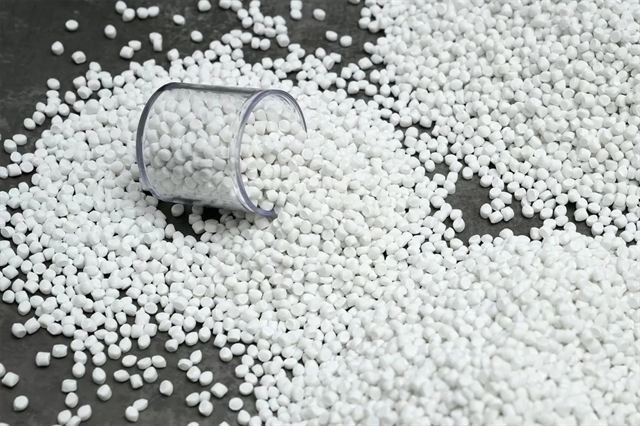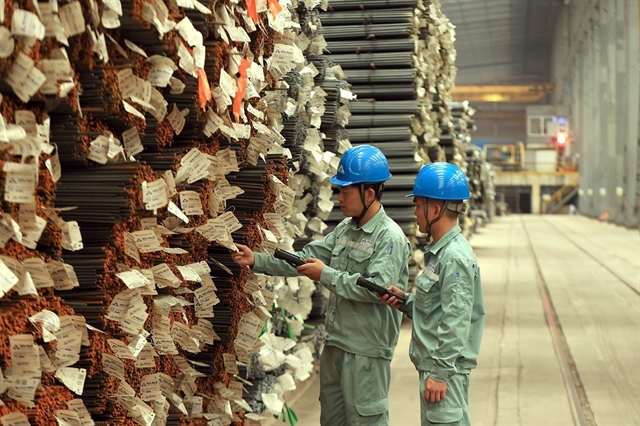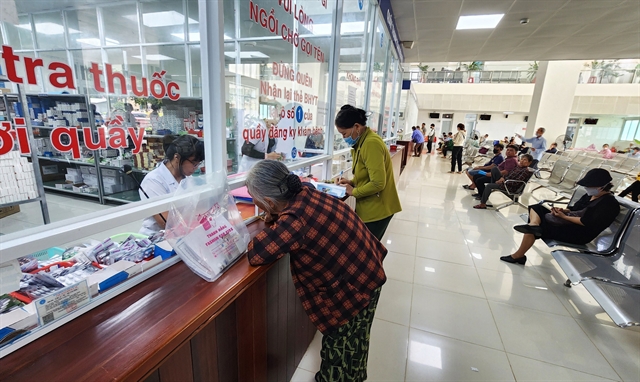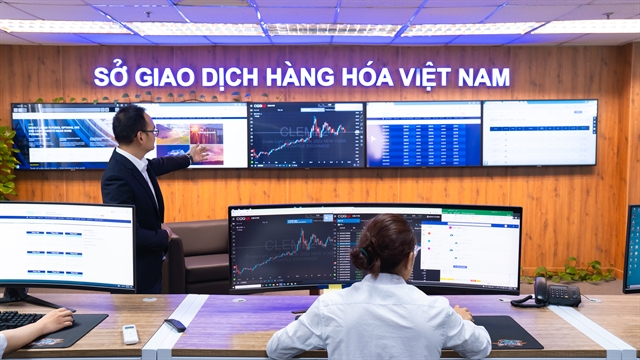 Economy
Economy

 |
| Workers check the quality of finished steel at Hoà Phát Dung Quất Steel Joint Stock Company. — VNA/VNS Photo |
HÀ NỘI — Việt Nam imported 1.2 million tonnes of HRC in September, a 34 per cent increase compared to August, according to data from the General Department of Customs. It equals 220 per cent of domestic production, set at 568,000 tonnes.
During the first nine months of 2024, Việt Nam imported nearly 8.8 million tonnes of HRC, a 26 per cent increase year-on-year and equivalent to 171 per cent of domestic production.
Of this, the amount of steel imported from China accounted for 72 per cent, equivalent to 6.3 million tonnes, significantly surpassing the consumption of domestic manufacturers, which only reached 5.1 million tonnes.
The dominance of Chinese HRC imports is primarily due to the lower prices - US$30 to $70 less per tonne compared to other markets, depending on the product type.
This price difference stems from China's steel surplus, with domestic demand falling, forcing Chinese producers to boost steel exports at lower prices to reduce excess inventory.
The influx of HRC imports into Việt Nam has persisted despite an ongoing anti-dumping investigation.
On July 26, the Ministry of Industry and Trade launched an anti-dumping inquiry into certain types of HRC originating from China and India.
Under the Law on Foreign Trade and Decree 10/2018/NĐ-CP, based on preliminary findings, the investigating authority may recommend that the Minister of Industry and Trade impose temporary anti-dumping duties. These temporary duties will not exceed the dumping margin found in the preliminary investigation.
According to economist Ngô Trí Long, with HRC imports surpassing domestic production, the Ministry's anti-dumping investigation aligns with international and Vietnamese regulations. It is essential to maintain fair competition for local steel producers.
Other countries in the region, including Thailand and Indonesia, have already implemented measures against Chinese steel.
Thailand and Indonesia's domestic production only meets 43 per cent and 65 per cent of their consumption needs, respectively. However, since 2019, these nations have imposed anti-dumping and most-favoured-nation (MFN) tariffs. — VNS




